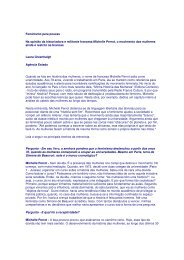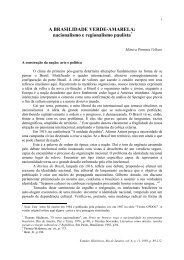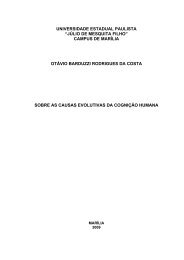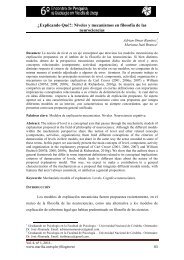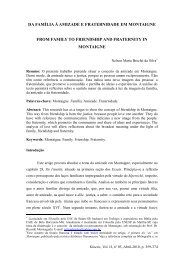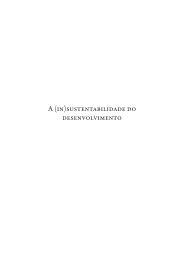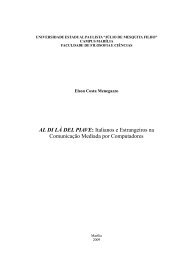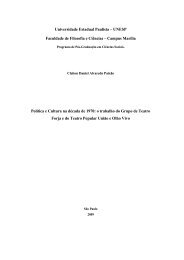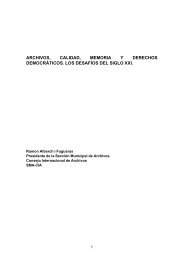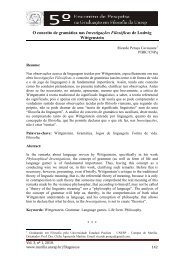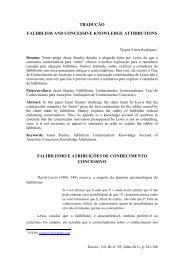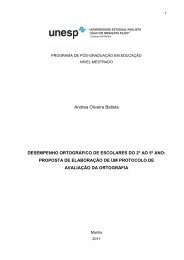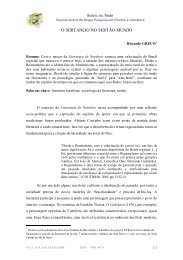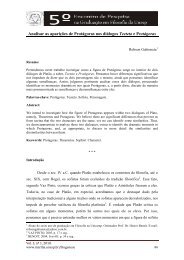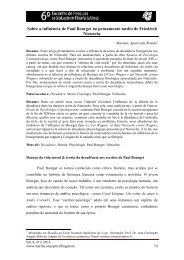Poder e Violência: Hannah Arendt e a Nova Esquerda
Poder e Violência: Hannah Arendt e a Nova Esquerda
Poder e Violência: Hannah Arendt e a Nova Esquerda
Create successful ePaper yourself
Turn your PDF publications into a flip-book with our unique Google optimized e-Paper software.
Abstract<br />
The aim of this paper is to analyze the reflexion undertaken by <strong>Hannah</strong> <strong>Arendt</strong> (1906-1975) on the<br />
phenomena of power and violence as well as her critique of the New Left, which is presented<br />
systematically in her essay On Violence (1969). The distinction between power and violence thus<br />
comprises a central theme in her political thought, which has had as a motivation for her reflexion the<br />
Student Rebellion of 1968, the Vietnam war and the role of violence within the New Left. Indeed, the<br />
power, on <strong>Arendt</strong>'s account, is inherent to every political community and it is a result of the ability to<br />
act jointly. Furthermore, the violence, that is instrumental, is based upon the means-end category and<br />
whenever stablished within the political sphere becomes responsible for causing the power to vanish.<br />
Therefore, power and violence are opposite subjects: as one becomes absolute, the other vanishes. By<br />
being in touch with <strong>Arendt</strong>'s thinking we come to realize that her innovative concept of power has<br />
been forged having as reference the tradition of Greek polis, which, from <strong>Arendt</strong>'s understanding, casts<br />
light on the defeat of the values of the modern Politics, as well as on the need of restoring the<br />
difference between public and private spheres to cause the originally political phenomenom to emerge.<br />
By putting her thoughts with those of other authors, we consider that Arednt's analysis of power goes<br />
completely beyond the conflicting constituents of political life and its traditional institutions.<br />
Moreover, the rejection of the extreme action of the New Left, by the author, largely seems to<br />
reinforce the chorus that refuses and rejects the utopia, which means, in the "end of ideology" context,<br />
the negation of the socialist perspective in behalf, once again, of the American "democracy" and<br />
"pluralism".<br />
Keywords: <strong>Hannah</strong> <strong>Arendt</strong>, power, violence and New Left<br />
9



